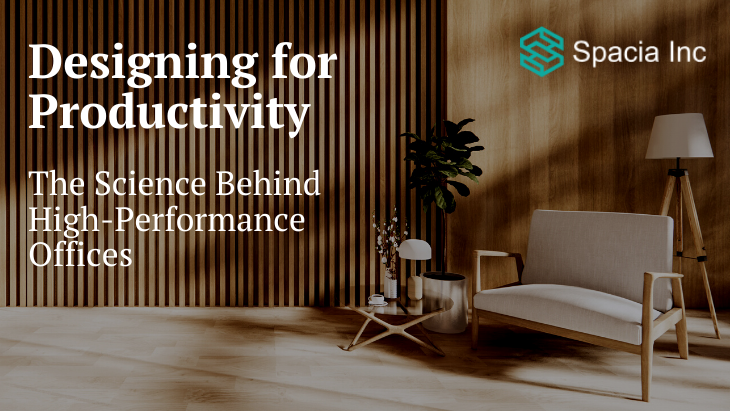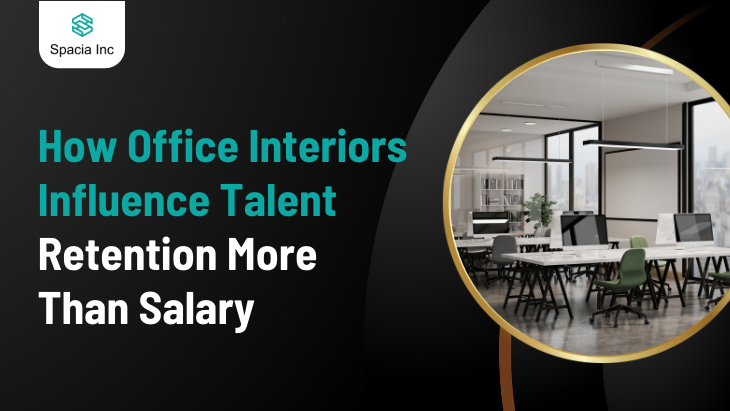Hiring has always been the passport to success for companies. For a small company looking for a professional oran international company looking for executives, bringing in the right person is the marker of success in the long run. Companies have, for decades, relied on traditional ways of recruiting: newspaper advertisements, word-of-mouth, and little resume screening. Interior Design & Turnkey Solutions With the pace of web development, these methods don't work anymore.
This is where AI job platforms step in. Relying on artificial intelligence and machine learning, they're revolutionising how businesses match with candidates. Compared to the conventional hiring that exhausts time, discriminates against so many, and is sluggish, AI platforms provide speed, accuracy, and tailored solutions. But what do AI job platforms do differently that improves on the previous recruitment method? Let's break it down.
1. Faster Recruitment Cycles
Shortlisting, browsing CVs, and interviewing burn recruiters' thousands of hours. Weeks, if not months, are wasted on it. An AI recruitment website skips such initial recruitment processes.
- AI algorithms automatically resume-screen by comparing job descriptions to CVs.
- Computerised ranking places best-fit candidates first.
- Chatbots automatically pre-screen and schedule interviews.
- This saves time-to-hire significantly, enabling businesses to hire the bestbest talent before others. Speed is especially important in talent-deficient markets.
2. Smart Candidate Matching
Traditional recruitment relies heavily on human screening of resumes by recruiters, which most often ends with good talent slipping through. Human error, tiredness, or the plainlain volume of applications can render manual reading of resumes useless.
AI job boards, however, utilise advanced algorithms and natural language processing to:
- Match experience and qualifications to job requirements.
- Identify transferable skills a candidate does not require.
- Provide recommendations on career development and cultural fit.
That is to say, employers no longer receive applicants – but the correct applicants, which means fewer mismatches and turnover.
3. Elimination of Bias
Unconscious bias is the biggest threat to conventional recruitment. The recruitment teams can unconsciously favour some applicants in terms of age, sex, ethnic group, or education. This translates to fewer diverse employees and lost chances for organisations.
AI can be programmed to delete only competence and qualifications but not identifiers like name, gender, or picture. By making an unbiased shortlisting procedure, AI ensures equitable and diverse workplaces. While algorithmic bias is circumvented by human involvement, discrimination is greatly curbed by AI compared to conventional practices.
4. Enhanced Candidate Experience
Earlier, the job applicants used to send resumes with no follow-up after weeks or sometimes never. Idleness is demotivating and provides a bad reputation for an employer.
AI job boards improve the candidate experience in several ways:
- Timely feedback from chatbots.
- Job recommendations based on qualifications and past searches.
- Interview feedback is given automatically.
When applicants are made to feel valued and informed throughout the process, there is a good likelihood that they will remain interested and speak well about the firm even if they are not offered the job.
5. Predictive Analytics for Smarter Decisions
The traditional hiring process traditionally takes experience and gut feelings into account. While helpful, they are prone to human bias. AI job search websites introduce data-driven decision-making.
Using predictive analytics, these sites are able to make predictions for the future concerning:
- A job candidate's performance in a given role.
- Future staffing needs are based on future reality.
- Chances of losing existing employees based on past reality.
This enables corporations not just to hire for the near future but for future-sight recruitment as well.
6. Cost Savings
Old-fashioned recruitment is expensive newspaper advertising, consultant costs, or enlisting crowds to distribute forms. All these costs mount when recruitment is a time-consuming process.
AI recruitment websites do this, but with the power to disintermediate middlemen and vast manpower. By disintermediating middlemen and crowds of manpower, companies save time and cost and are receptive to pools of quality candidates.
7. Scale for Mass Hiring
When companies require mass recruitment, such as seasonal employees, call centre agents, or delivery staff, traditional recruitment staff are bogged down with sheer amounts of CVs.
AI recruitment websites perform well in these situations. They can:
- Sort through hundreds of CVs in seconds.
- Batched automated testing.
- Rank candidates based on performance criteria.
Such responsiveness makes AI-based hiring particularly apt for high-employee-turnover or high-growth sectors.
8. Integration with Skill Assessments
Traditional interviews and basic screening tests are used in traditional employment, and it is quite possible that they may not be true tests of actual world capability. AI job portals typically have skill-based assessments such as coding tests, problem-solving tests, or language tests.
By incorporating resume data and actual performance data, the employers get the complete idea of the candidates before employing them. They have fewer chances of recruiting an improper person due to it.
9. Real-Time Market Intelligence
Historic recruiters are founded on ancient pay standards and grapevine industry trends. AI job boards offer minute-by-minute labour market intelligence in the following modes:
- Minute-by-minute salary trends for specific jobs.
- Hot skills in the labour marketplace.
- Geographic availability of talent by geographic region.
Recruiters use this information to make highly well-informed judgement-based decisions about compensation and qualifications needed for a job, ahead of the pack.
10. Continuous Learning and Improvement
Unlike dynamic employment boards or conventional recruitment methods, AI job websites learn and improve every day. The more information they sort through, the more they can recognise success, sense shifts in a specific industry, and offer individually tailored recommendations.
That is recruiters in the sense of the mechanism improving itself without constant human intervention, something conventional recruitment can never ever dream of attaining.
Conclusion
AI career websites are not so much a recruitment trend but the recruitment of the future. As opposed to the traditional ways, they offer:
- Efficient and compact hiring processes.
- Smart candidate matching.
- Less prejudice and more diversity.
- Improved candidate experiences.
- Data-driven predictive analysis.
- Reduced costs and scalability.
Whereas human nature and human-to-human interaction are always going to be out of the control of the recruitment process, the intelligence and efficiency of AI platforms place them far superior to the old ways. Spaciainc Businesses embracing AI-powered recruitment today are preparing to select, engage, and hold on to top talent in a rapidly growing competitive talent pool.








Leave a reply